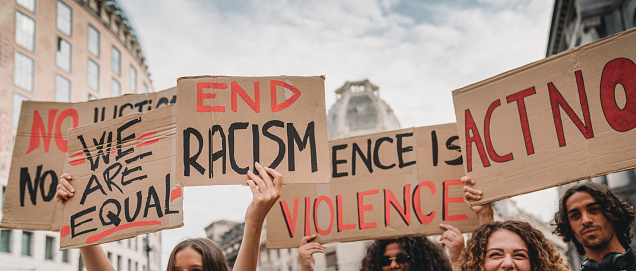
MORE than a third of persons from ethnic and religious minorities have faced physical or verbal abuse motivated by race, revealed by the biggest and most comprehensive survey of race inequality in the UK for more than a quarter of a century.
The Economic and Social Research Council (ESRC) -funded project by the universities of St Andrews, Manchester, and King’s College London, released the findings this week in a book called Racism and Ethnic Inequality in a Time of Crisis, the two-year research – which has been seen by the Guardian discovered the prevalence of “substantial ethnic inequalities” across British society and institutions with ethnic minorities exposed to “strikingly high” levels of physical or verbal abuse.
It also noticed inequality of outcomes in education, housing, workplace, and interactions with the police.
According to the research reported by the Guardian, one in six people from minority ethnic and religious groups reported a racist physical assault before the pandemic.
The survey found 29 per cent of the minority groups experienced racial discrimination in education and employment and nearly a fifth felt discriminated against by police and when looking for housing.
Ethnic minorities are more likely to live in overcrowded housing than white Britons, with 60 per cent of Roma families and about 25 per cent of Pakistani people saying it is true in their case.
The outcome of the research, described by the _Guardian_ as the ‘most comprehensive survey of race inequality in the UK for more than a quarter of a century’, is at odds with the government-funded Sewell Report published in 2021. That report was criticised for downplaying structural racism.
The study was headed by Nissa Finney, professor of human geography at St Andrews, who said it proved racism was “part of daily lives”.
She said: “The UK is immeasurably far from being a racially just society. The kinds of inequality we see in our study would not be there if we had a just society.”
The study also indicated that a considerable majority of minority groups had a strong feeling of belonging to British society combined with a deep devotion to their ethnic identity, despite the severe results of disparity.
This sense of belonging is evident in higher levels of faith in Parliament and devolved governments than white British people, which grew during the pandemic when racial and ethnic minorities had a higher risk of getting Covid-19.
Additionally, it discovered significant levels of political participation among ethnic minorities.